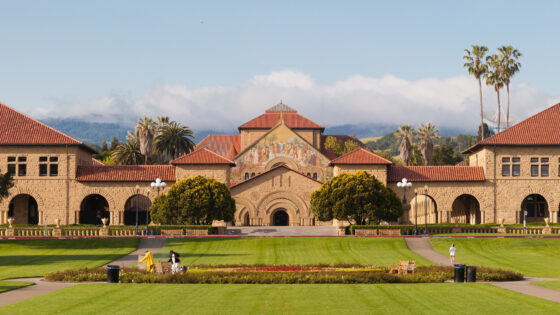Africa’s top university will be placing its partnerships with its US counterparts in jeopardy if it succumbs to pressure from BDS activists to adopt a full-scale academic boycott of Israel, a prominent American law professor told The Algemeiner on Tuesday.
The governing bodies of the University of Cape Town (UCT) — which is regularly ranked as Africa’s number one university as well as among the world’s top 200 universities — will be debating the adoption of an academic boycott resolution on September 15. If passed, UCT would be obliged to cut all ties with Israeli faculty and academic institutions — a move that would trigger outrage among US academics and their colleagues in other countries, Prof. David Bernstein of the Scalia Law School at George Mason University said.
“They are trying to isolate Israel, but they may find that the University of Cape Town is internationally isolated instead,” Bernstein told The Algemeiner. “There would be a substantial number of professors like myself who would have nothing to do with UCT should they adopt an academic boycott of Israel.”
UCT currently has partnership agreements with at least 44 American universities that facilitate student and faculty exchange programs and other joint projects — among themColumbia Business School, Ohio State, Vanderbilt University, the University of Chicago, Pennsylvania State and Arizona State.
Ohio, Pennsylvania and Arizona are among the 22 US states to have passed anti-BDS legislation, with all three having signed their bills into law in 2016. The bills typically prohibit state governments and agents from contracting with entities that actively boycott Israel — measures that may well impact state-funded universities in particular, Bernstein said, adding that there would be “justified pressure on all universities, private and state” to cease working relationships with UCT. More generally, academic boycott initiatives will face a potentially formidable legal obstacle in the form of the Israel Anti-Boycott Act — introduced in March by Sen. Ben Cardin (D-MD) — that is likely to be voted on by Congress during its upcoming session.
Bernstein said that UCT would also find it impossible to defend itself from retaliatory moves that a boycott would likely produce. “Once you endorse an academic boycott yourself, you don’t have any standing when it comes to opposing people who then engage in a boycott of your institution,” he remarked.
An analysis of the proposed UCT boycott by Sara Gon of the Institute of Race Relations — a veteran South African think tank that was in the forefront of domestic opposition to apartheid — noted that four events on the UCT campus promoting the boycott are being held over the next month, with the first one having taken place last week.
Gon observed that many of the academics urging the academic boycott are prominent leaders of the country’s BDS movement, which has energetically pushed the analogy between Israel and apartheid South Africa despite the offense this comparison generatesamong many South Africans. Among the group are Prof. Ran Greenstein, an Israeli anti-Zionist, and Farid Esack, a professor of Islamic Studies at Johannesburg University who responded to the November 2015 terrorist attacks in Paris, in which more than 120 people were murdered, by protesting, “I am not praying for Paris; I am not condemning anyone. Why the hell should I?”
Esack ended his comments by saying: “The logic is quite simple: When you eat, it’s stupid to expect that no sh*t will ever come out from your body. Yes, I feel sorry for the victims on whom the sh*t falls. But, bloody hell, own it; it’s yours!”
The UCT Senate’s September deliberations will be strongly influenced by the current debate within the university’s Academic Freedom Committee (AFC) on whether to adopt an academic boycott of Israel.
“It has been difficult to ascertain who the members of the current AFC are, but it is understood that some members of the AFC support [the] call for a boycott,” Gon wrote in her analysis.
The template for the academic boycott was originally designed by Palestinian NGOs in 2004, in a statement that identified Israel’s universities as “a key part of the ideological and institutional scaffolding of Israel’s regime of occupation, colonialism and apartheid against the Palestinian people.”
Clarifying the precise target for the boycott, the statement declared that “[A]ll Israeli academic institutions, unless proven otherwise, are subject to boycott because of their decades-old, deep and conscious complicity in maintaining the Israeli occupation and denial of basic Palestinian rights.”
The first effort to introduce an academic boycott along these lines was narrowly defeated at the British Association of University Teachers (AUT) annual conference in 2005, but set in motion more than a decade of similar — and largely unsuccessful — campaigns at universities around the world. UCT would be the first major academic institution in a democratic country to adopt a boycott of Israeli academia.




